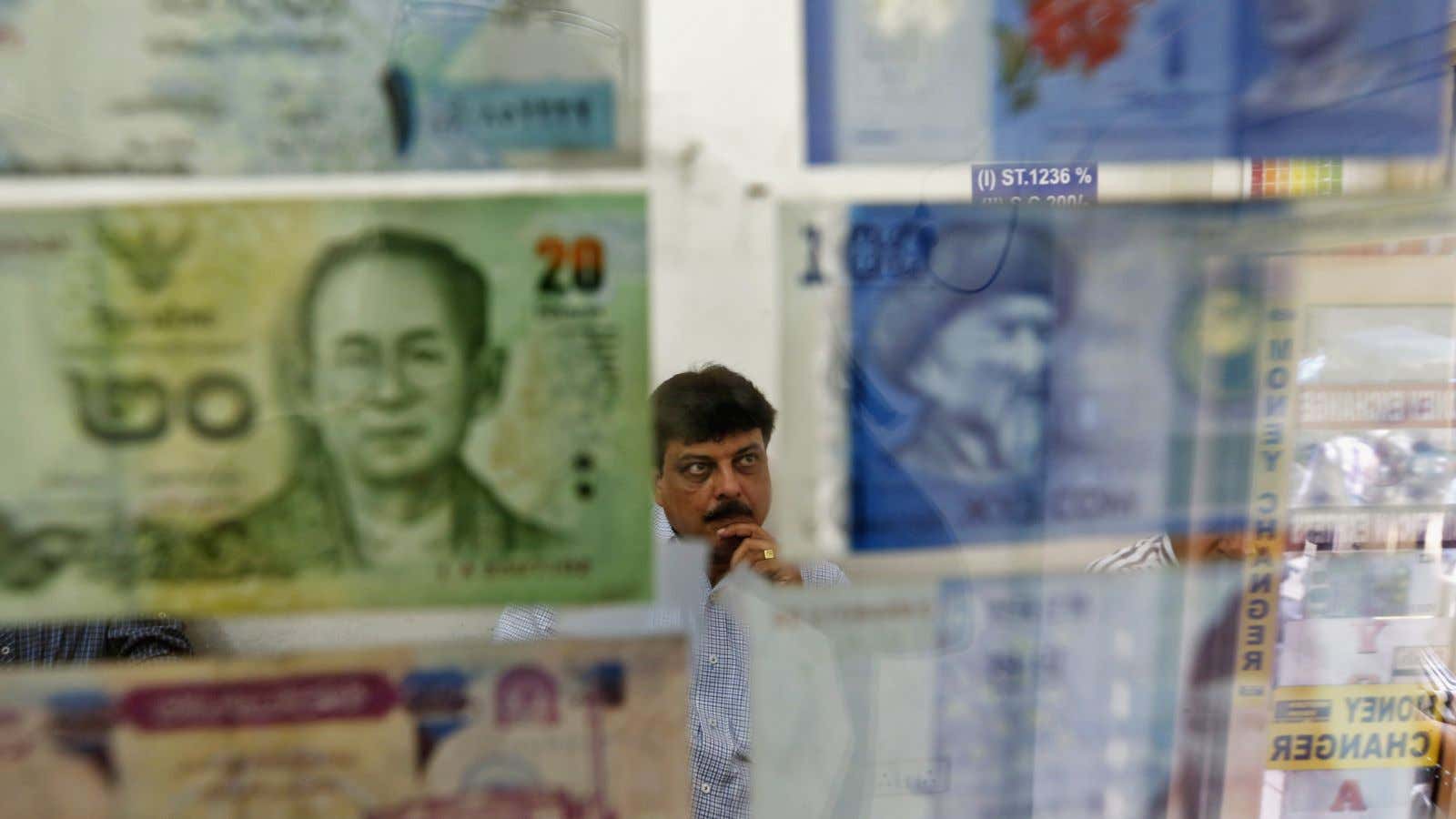India’s overseas population is making the best of its sliding domestic currency by sending huge amounts of money back home.
Since January this year, the rupee has come under domestic and global macroeconomic pressure. Higher international crude oil prices, a widening trade deficit, the exit of foreign investors from India, and the US’s protectionist stance have all played havoc with the currency.
As a result, Asia’s worst-performing currency has already lost over 9% in this calendar year. It breached the Rs70 per dollar mark for the first time earlier this month and remains under pressure.
Over this period, inward remittances to the country have spiked by up to 25%, according to industry experts.
“Remitters get better value in rupee terms, be it for UAE’s dirham, the US dollar, British pound or any other currency. So the volume of remittances from most of the sending regions (the Gulf, North America, Europe, or Asia Pacific) is supposed to have gone up by 20-25% in the last few weeks compared to the period prior to rupee’s depreciation,” Sudhesh Giriyan, chief operating officer of Xpress Money, a money-transfer company, told Quartz.
India has the highest number of residents living abroad and these Non Resident Indians already send more money back to India—$69 billion in 2017—than non-residents of any other country.
“We have already seen significant growth in inward remittances this year and, therefore, the total amount is expected to be higher than last year due to a weaker rupee,” said Krishnan R, chief financial officer of remittance firm UAE Exchange.
To meet this growing demand, remittance companies have even eased some norms in the past few months.
“We’ve raised our 24-hour send limits to India to $30,000 (as opposed to $20,000) when sent from the US and £25,000 (compared to £18,000) when sent from the UK, earlier this month,” said Matt Oppenheimer, CEO and co-founder of Remitly, a US-based digital remittance company.
Kerala floods
Another reason for the spike in remittances may be Kerala’s massive floods that inflicted severe economic and personal losses.
In order to help rebuild the southern Indian state, many of its over 2.4 million natives settled overseas—a good section in the Gulf—have sent money back home.
“Typically, we also see a lift in transactions to regions impacted by natural disasters. For example, through our channels we recently saw a 13% increase in transactions sent to the Kerala region that has experienced devastating floods,” Oppenheimer said.
